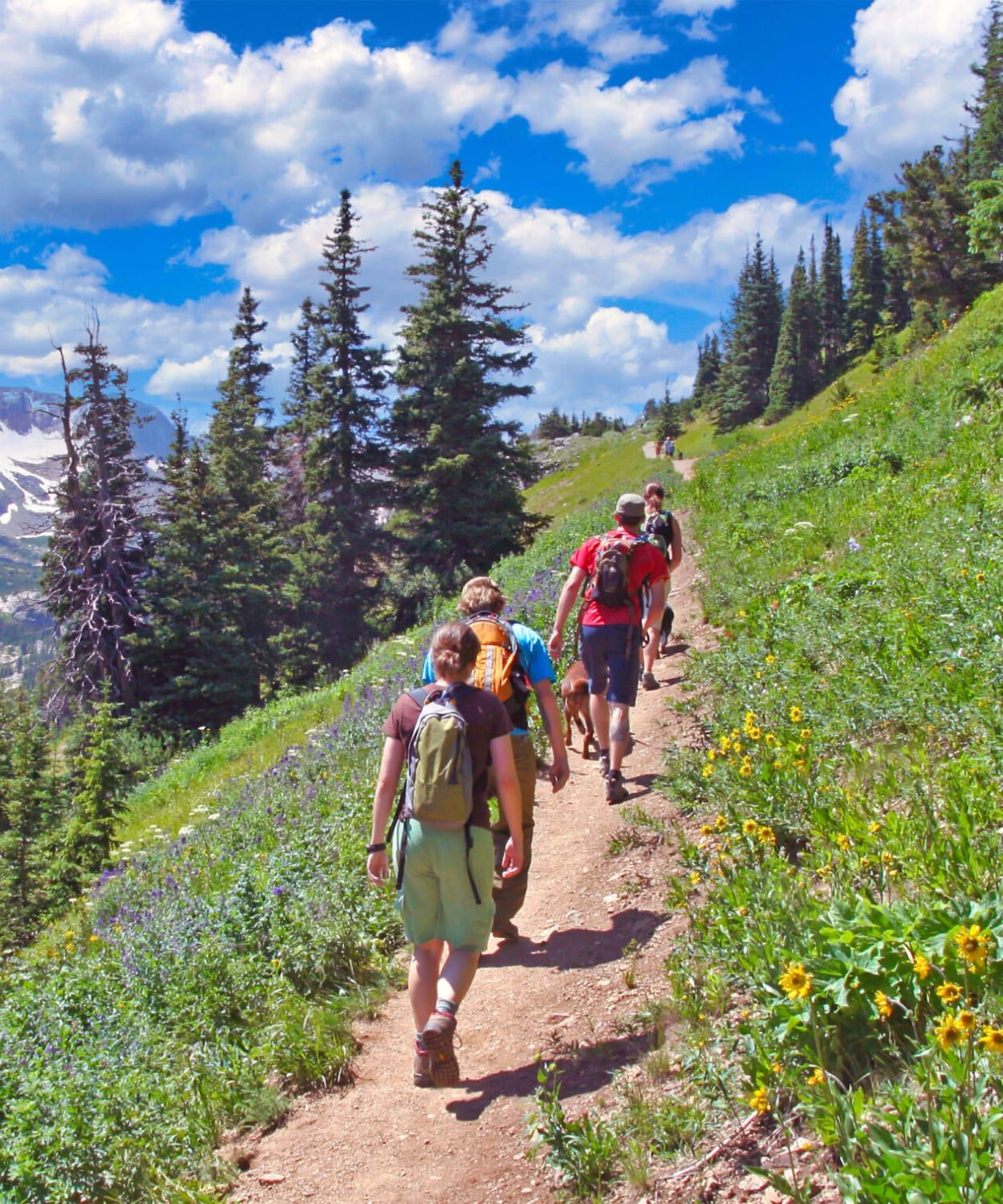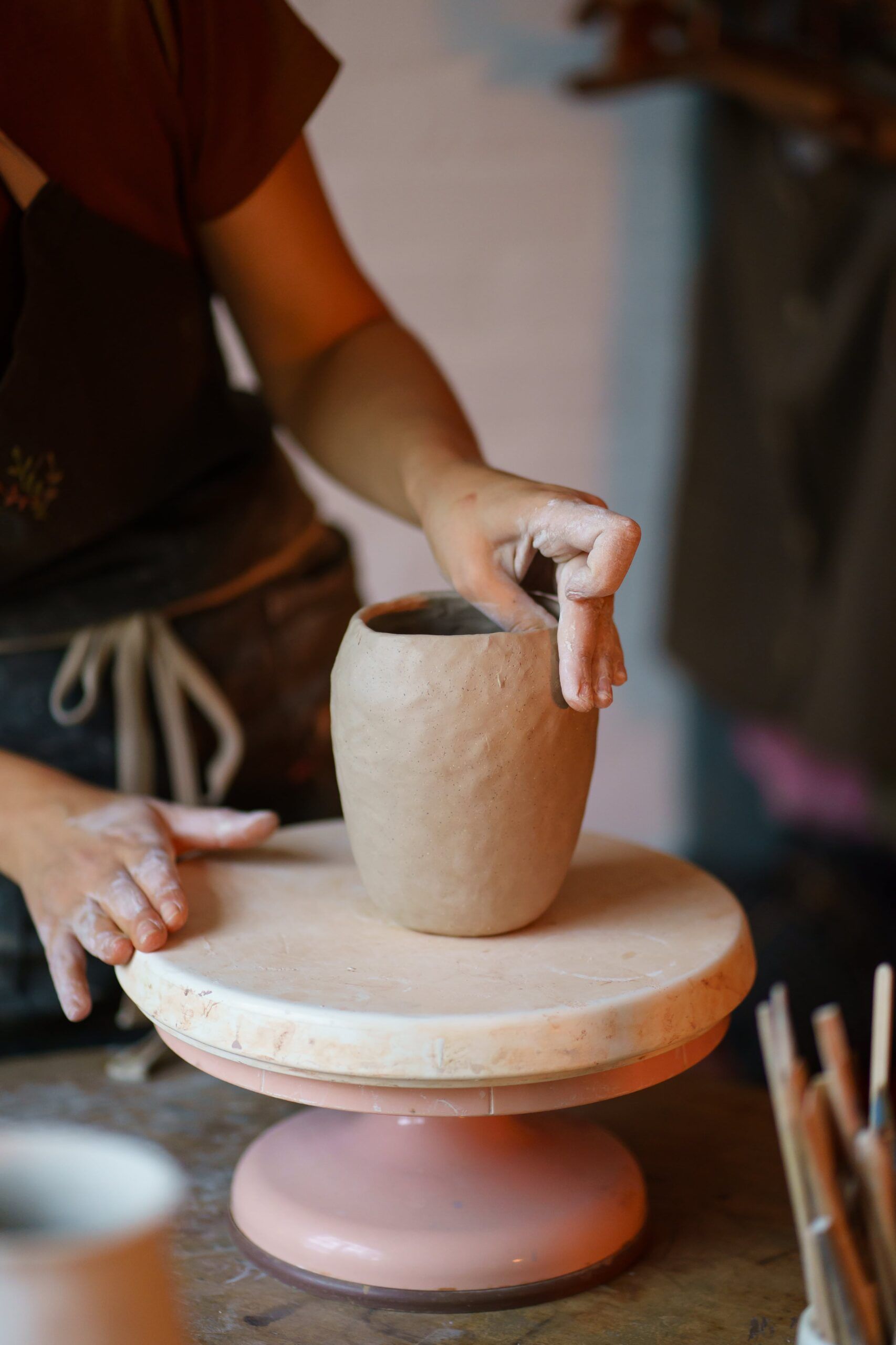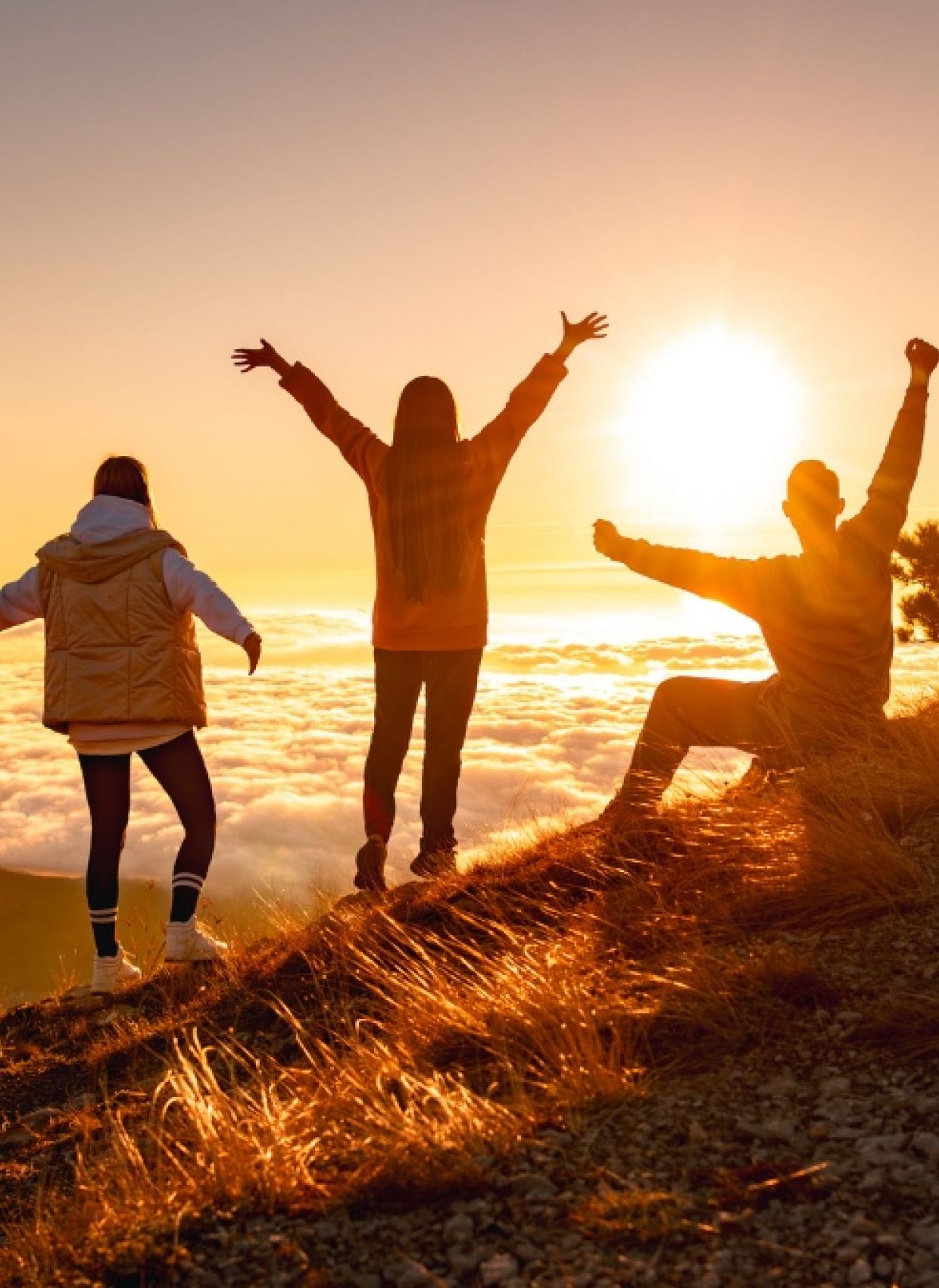Daily Schedule
At Flatirons Recovery, we value structure, recognizing its crucial role in the healing process. Our daily schedule for our Recovery Ranch Program ensures a balanced and comprehensive approach to recovery. Over the week, clients can expect:
- 1-2 Individual Therapy Sessions
- 1 Case Management Session
- 1 Provider Appointment
- Auricular Acupuncture
- Optional Family Therapy
Additionally, clients participate in 3 group therapy sessions and a community-based recovery meeting daily. Weekends are dedicated to nature-based activities, outings, and sober fun, promoting holistic well-being and connection. This structured approach supports our clients’ journey toward lasting recovery.
What Does a Typical Weekday Look Like? 

A typical weekday at Flatirons’ Recovery Ranch Program is designed to provide structure and support throughout the recovery process. This example schedule outlines a balanced day focused on therapy, personal growth, and community involvement.
Therapy groups rotate daily; see below for group descriptions. Community-based meetings also rotate daily, providing varied support throughout the week.
7:00 AM: Wake up, daily gratitudes, and guided meditation
7:45 AM – 8:15 AM: Breakfast, shower, and prepare for the day
8:30 AM: Transportation to counseling center
9:00 AM – 2:00 PM:
Group 1: Foundations for Recovery
Group 2: Mindfulness-based recovery strategies
Group 3: Nutrition and holistic recovery
2:15 PM: Power hour: Individual or family therapy, case management, or open gym/swimming time
3:30 PM: Drive back to Recovery Ranch
3:30 PM – 6:30 PM: Free/open time, family-style dinner
6:45 PM – 7:45 PM: Community-based recovery meeting (Recovery Dharma, SMART Recovery, 12-step, LifeRing)
8:45 PM – 9:15 PM: Nightly review: Reflecting on your recovery for the day
11:00 PM: Lights out
This structured daily routine helps clients develop healthy habits, engage in meaningful activities, and receive the necessary support for their recovery journeys.
Weekend Activities and Outings 
Weekends are just as integral to the recovery journey as weekdays. We believe in fostering an environment that supports holistic healing and personal growth every day of the week. Our weekend activities are thoughtfully designed to complement our comprehensive treatment program, offering opportunities for relaxation, recreation, and reflection. From outdoor adventures to therapeutic group sessions, our weekend schedule provides a balance of structure and leisure to support individuals on their path to recovery.
We emphasize the importance of re-learning how to have fun sober, recognizing that enjoying life without substances is a crucial part of long-term recovery. Additionally, the healing nature of Colorado’s landscapes provides a serene and rejuvenating backdrop for our activities, aiding in emotional and mental healing.
Some of our weekend activities and outings include:

- Hiking around Boulder and Rocky Mountain National Park
- Rock climbing
- Ropes courses
- Paddleboarding
- Fishing
- Sober community meetups (BBQs, outdoor adventures, etc)
- Visits to community farms to connect with animals
- Swimming in Boulder Creek
- Mini golf and go-carts
- Denver Museum of Nature and Science
- Denver Art Museum
- Pottery studios
- Ice skating
- Bowling
- Botanical gardens
- Denver Aquarium
- Smash rooms
- Basketball, baseball, and hockey games
- Movies
- Top Golf
- Self-care outings to nail salon
- Escape Rooms
Therapy Group Descriptions 
Group Therapy is a foundational way in which clients engage in treatment at Flatirons Recovery. Below are sample descriptions of various groups and/or group topics that may be covered during treatment at Flatirons Recovery. Please note that these group descriptions are for informational purposes and may not be consistent with actual group offerings. Please inquire with admissions staff as to up to date group curriculum.

Foundations
During Foundations, clients choose a compassion card daily and process its significance to their recovery path. Then, clients engage in a mindfulness exercise to practice taking advantage of brain neuroplasticity and to cultivate insight into how their body and mind connect, to facilitate being more able to make informed recovery-oriented life choices.
Finally, clients use CBT interventions to identify a Daily Intention, as well as a Roadblock, and Coping Action for the day. Daily, clients learn and practice how to quiet the mind, relax the body, and listen to the wisdom within. The group teaches skills of mindfulness meditation during daily sitting meditation, mindful walks, and body scans.
Recovery Resilience
During the Recovery Resilience group, clients have an opportunity to explore the link between trauma and addictive behaviors. And, to learn nervous system regulation to support recovery. This group addresses the intricate connection between psychological and physiological aspects of an individual’s experience. Also, this group aims to address the physical manifestations of stress, trauma, and other psychological challenges that may have become habitual in a client’s life.
Current research connects nervous system regulation to improvements in symptoms of trauma and addiction. Nervous system state concepts and regulation techniques are taught to provide clients with the confidence and capacity to hold themselves through life’s challenges. This group uses psychoeducation, techniques, and exercises from Somatic Experiencing and poly-vagal theory.
Mindfulness-based Addiction Recovery Strategies
Mindfulness-based Addiction Strategies is a program that integrates mindfulness meditation practices with traditional cognitive-behavioral techniques. This program is designed to target primary risk factors for relapse, including deep-seated beliefs, mental and behavioral habits, and urges and cravings common to a variety of addictive behaviors.
Clients learn the skill of using CBT, ACT, and DBT. This group is formatted in a sequence of 8 sessions. Each session builds upon the previous, yet can also stand alone. Topics include emotions, thinking errors, behaviors and values, vulnerability, grief, and boundaries. Clients apply and utilize mindful awareness to reduce the risk of relapse and improve overall well-being through both guided mindfulness practices and discussions.
Art & Expression for a Creative Recovery
Traditional talk therapies rely on predominantly left-brained mechanisms such as rationality, speech and language, and logic, among others. During the Expressive Therapy group, clients will incorporate non-verbal expressive activities.
For instance, Motivational Interviewing and Motivational Enhancement therapeutic interventions, focus on the values, choices, and decision-making processes that have both supported and interfered with their recovery goals, to make better future choices regarding their overall healing from addiction.
Some techniques utilized include:
- Music
- Movement
- Dance
- Writing
- Poetry
- Drawing
- Sculpting, and more


Open Process Group
During Open Process, clients start with a basic check-in to include:
- How they are feeling in the moment (using a list of feeling words)
- Days sober
- Goals/intentions they have achieved this week
- The most difficult challenges this week
- Something they have learned from treatment programming in the past week
- Something for which they are grateful
- Any difficult feelings/thought patterns/experiences they have had this past week
Open discussion and process follow, allowing clients to explore particular themes in their recovery, relate their experiences with other clients, and have the opportunity to practice vulnerability, empathy, and giving feedback and reflections to one another.
Make it Matter
This group serves as an opportunity to explore achievements, challenges, and growth that occurred over the past week of recovery. It also supports orienting toward the start of the new treatment week by setting intentions and goals for continued progress in treatment. During group, clients reflect on the previous week/weekend identifying an experience they are proud of themselves for (Yay), a difficult and challenging experience (Yuck), something they learned, or a valuable lesson they gained from either their Yuck or Yay (Yes).
Accordingly, they set an intention to work on a specific issue/theme to continue advancing their progress in recovery for the coming week. Clients share these in the group and support their peers in their shares. Thereby, building their confidence and competency, as well as enhancing the connection between group members.
Personal Discovery
During the Personal Discovery group, clients explore certain tools for personal discovery and awareness including mindfulness and inquiry. They explore the territory of the self. In addition, clients learn about psychological types, using the Enneagram, consider their personality type, and reflect on how it impacts their life and recovery.
Clients also learn about the adult psychological stages of development and consider the human potential for development and addiction’s negative effect on development. Psychoeducation about trauma, its relationship to addiction and other psychological disorders, as well as ways of working with trauma, are provided. Finally, clients gain an understanding of the Self’s potential for empowerment, love, and wisdom. In general, they identify the obstacles and potentials of personal discovery and human life.
Mindful Movement and Embodiment
During the Mindful Movement group, clients practice mindfulness-based, body-based, and movement-based experiential activities in groups with one another. Whereas, this serves to take advantage of the brain’s neuroplasticity, while cultivating greater insight into how more effective mind/body connection can enhance recovery from substance use and mental disorders. Consequently, supporting better mental health functioning.
Utilizing the group as a form for practicing these interventions allows clients the opportunity to challenge old assumptions about themselves in relationship to others, their bodies, and what it means to engage in a community of recovery.


Nutrition & Holistic Health in Recovery
During Nutrition and Holistic Recovery, clients are offered psycho-educational interventions focused on holistic, whole-body approaches to support healthier activities of daily living in recovery.
Topics include:
- Eating for Recovery
- Food and Mood
- Malnutrition and the Digestive System
- Exercise and Movement
- Sleep and Circadian Rhythms
- The Role of Vitamin Supplements in Recovery
- The Healing Use of Fiber, Antioxidants, Carbohydrates, Protein, and Fats
- Healthy Relationships
- Conflict Management
- Social Engagement
Clients learn factors that directly affect their urges to use substances, gain understanding in the adoption of habits, support their bodies in detoxing, and are provided information on how to begin to feel well.
16 Principles for Empowered Recovery
The 16 Principles Group makes use of the 16 Steps for Discovery and Empowerment by Charlotte Kasl, PhD, which expands on 12-step programming and focuses on empowerment and wholeness, encourages clients to seek power and guidance for personal recovery from within, acknowledges oppression, and honors difference.
The group supports clients in overcoming addiction, healing their relationships, tapping into their inner/higher truth, and enhancing their path to recovery. Clients learn relapse prevention techniques for transcending low self-esteem, stress, fear, anxiety, loneliness, and withdrawal. Clients begin to affirm their innate intelligence, creativity, and capacity for wisdom.
Calm & Confident: EMDR Resourcing
EMDR (Eye Movement Desensitization and Reprocessing) therapy is an 8-phase protocol that has been proven to be highly effective for treating a wide variety of mental and emotional difficulties including trauma, stress, anxiety, grief, self-esteem, and cravings/addiction. EMDR is founded on the basis that our emotional well-being is interwoven with our physical (somatic) state.
Thus, EMDR employs a body-based technique called bilateral stimulation during which a therapist guides clients through eye movements, vibrations, tones, or taps to support adaptive functioning and calm the nervous system. In this group, Phase 2 of EMDR is provided, using bilateral stimulation.
Though the full protocol is not offered in the group setting, bilateral stimulation and resourcing activities provide nervous system regulation, adaptive coping strategies, and stabilization as the groundwork for potential future individual memory reprocessing.
Growth in Recovery: Milestones
Growth in Recovery Milestones group utilizes Motivational Interviewing, identifying clients’ stages of change and supporting advancing development in recovery. Solution-focused therapy is also utilized, recognizing and building upon the client’s strengths and celebrating achievements as a way to increase motivation for continued growth and behavior change. The client’s progress through 8 phases of recovery, tracked through the metaphor of a growing plant, utilizing experiential art therapy.
Phase details are:
Phase 1 (Soil) – Clients offer an introduction to the group and complete their initial Relapse Prevention Plan.
Phase 2 (Seed) – Clients complete their Hello Recovery, Goodbye to Substances/Maladaptive Coping Strategies.
Phase 3 (Root) – Each client completes an exploration of their values and their ultimate why.
Phase 4 (Air) – Clients create a Relapse Enhancement Plan identifying internal resources such as triggers, cues, distraction tools, and affirmations.
Phase 5 (Water) – Clients create a Relapse Enhancement Plan identifying social resources such as sober support, recreational activities, free time, and self-care activities.
Phase 6 (Sun) – They create a Relapse Enhancement Plan identifying community resources such as outpatient therapy, recovery coach, sponsor, and community meetings.
Phase 7 (Sprout) – Clients imagine and identify possibilities for their future and create a Vision Board.
Phase 8 (Fruit) – Clients recognize their growth and change, celebrate their progress, and participate in a treatment graduation ceremony.
The group also promotes active listening, giving and receiving impact/feedback, and processing what arises with peers sharing their milestones.
Community Recovery Meetings 
Community recovery meetings are a cornerstone of the Recovery Ranch Program at Flatirons Recovery. We understand the importance of “finding a tribe” for long-term recovery. Engaging in various meetings helps individuals build a supportive network and discover the approach that resonates most with them.
Our meetings include:
- AA (Alcoholics Anonymous) and NA (Narcotics Anonymous): 12-step programs focusing on shared experiences and mutual support.
- CA (Cocaine Anonymous): Similar to AA and NA but specifically for those recovering from cocaine addiction.
- Recovery Dharma: Utilizes Buddhist practices and principles to aid recovery.
- LifeRing: Emphasizes personal empowerment and self-help.
- SMART Recovery: Uses evidence-based techniques for self-management and recovery.
These diverse meetings ensure that everyone can find a community that supports their recovery journey.

Learn More About Our Daily Schedule at Flatirons Recovery 
The structured daily schedule of the Recovery Ranch Program at Flatirons Recovery is essential for fostering a stable and supportive environment during recovery. By providing a balanced routine that includes therapy, personal time, and community engagement, we help individuals build healthy habits and establish a sense of normalcy. This structure is crucial in supporting long-term sobriety and personal growth. We are dedicated to guiding each person on their recovery journey with empathy, understanding, and unwavering support.
Contact us today to learn more about our successful addiction and mental health treatment programs in Colorado.